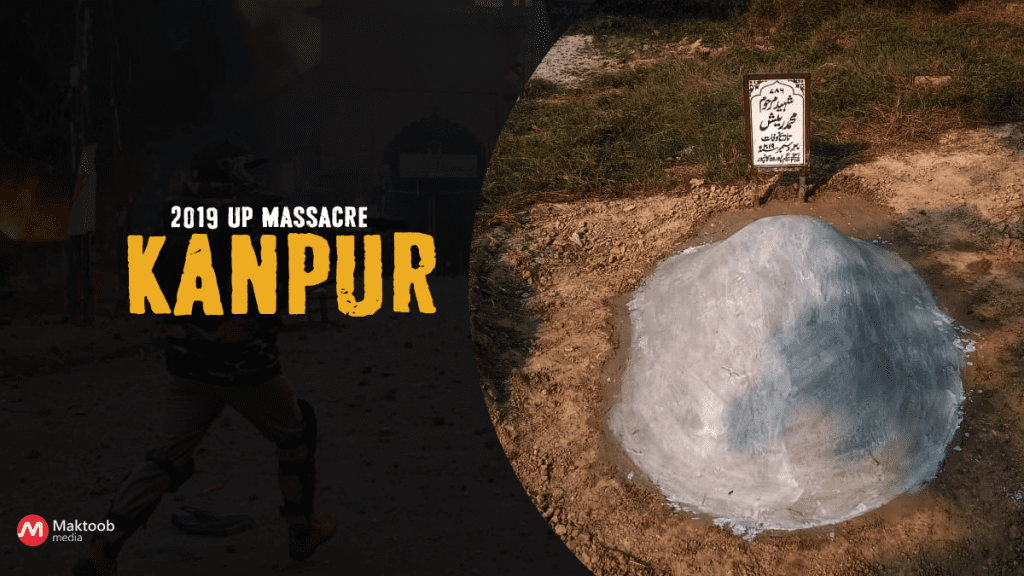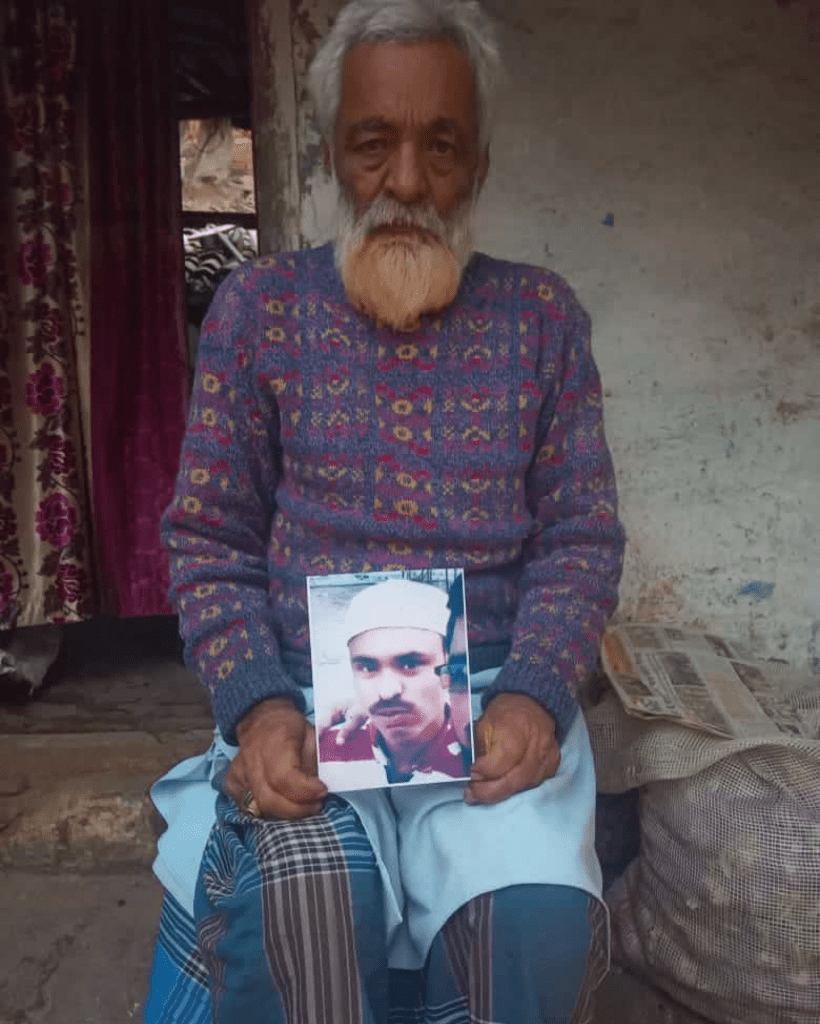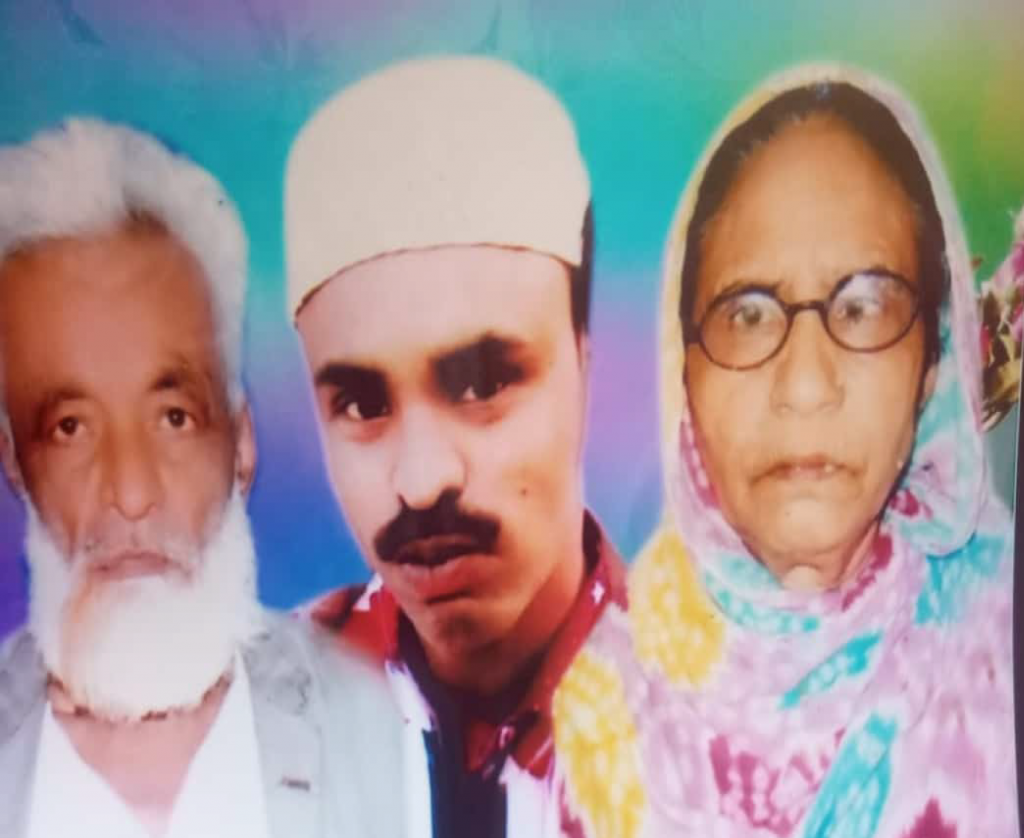
On 20 December 2019, the second week of passing India’s anti-Muslim citizenship law, mass shooting and police crackdown happened across Uttar Pradesh killing at least 23 Muslims. It is arguably the biggest single-day carnage in recent times. UP government systematically undermined the massacre by sieging the Muslim communities with internet shutdown, mass incarnation and brute human rights violation. Maktoob initiates a revisit to the Massacre and examines the life of survivors. We urge our readers to help us reach the victims.
That Friday, before hell broke loose, Mohammed Raees, 30, a resident of Begum Purwa, a Muslim neighbourhood in Uttar Pradesh’s Kanpur district, after Friday prayer, stayed back in Eidgarh to wash utensils at a marriage function.
“He saw a stampede and tried to escape. He was shot in his stomach,” Mohammed Raees’s brother Mohammad Saeed told Maktoob.
Raees, the eldest child of Mohammed Shareef and Kismattun Nisa, was one of the three slain in Kanpur, one among the nine cities were Muslims were killed during the 2019 anti-Muslim massacre. At least 23 Muslims were killed across UP on December 19, 20 and 21, a week from anti-Citizenship Amendment Act protests erupted across India.


After the hit, locals who recognized Raees brought him home soaked in blood. “We tried to take him to the hospital immediately but the situation outside became worse than it was we were afraid to step out,” Saeed recalls.
According to several media report, more than 12 people had gunshot injuries in Kanpur on 20 December 2019. Evidence of police firing at the crowd surfaced social media after UP police chief denied firing.
Raees, who was shot around 3:30 pm that evening, had to wait for hours to be treated at a nearby nursing home. Next day morning he was admitted at Lala Lajpat Rai Hospital, commonly known as Hallet hospital.
“We reached the hospital at 5:00 am, I didn’t see him alive after he was admitted.”
The next morning, the second day after Raees was shot, his family noticed increased police presence. “I think he died that morning itself. There was much police at the hospital. But we were informed about it only at 4 pm.”
Police refused to hand over the body to the family and buried him under their command. The family alleges they didn’t see his face after he was admitted in the hospital.
Police want us to remain silent
“Inspector Tomar shot my son,” says Mohammed Shareef, Raees’s ailing father. Kins of all three killed in Kanpur echo the same allegation against the police.
After wide outcry against the police violence during CAA protest, Inspectors of violence-affected areas, Babupurwa and Bekganj, have been removed. Bekganj Inspector Veer Singh has been sent to the crime branch, while Babupurwa Inspector Amit Singh Tomar has been given charge of the Fazalganj police station.


“When I heard the news about his death, I fainted and fell on the floor.”
Shareef, father of seven children had to go through intimidation from police after he accused police responsible for his son’s death.
“The day he was shot he clearly told me police shot him. He was running away.” Attempts by police officials to settle the matter with compensation went in vain after the 70-year-old father remain adamant about filing case against the culprits.
“I was called by the police and asked to sign some papers. When I refused, I was called to circle inspector’s office. I was told if I take back my case, they will give me money and situation will be favourable for me.” Alleges Shareef.
“I have no lust for money, but they don’t have anything that can compensate for my son’s life all I want is justice.”
There is no FIR in the complaint made by Shareef even after a year has passed.
“The police keeps on threatening me and my younger brother that they will file a false case against us. They want us to change our home. It’s a rented place where our father is living for around 70 years,” says Saeed.



